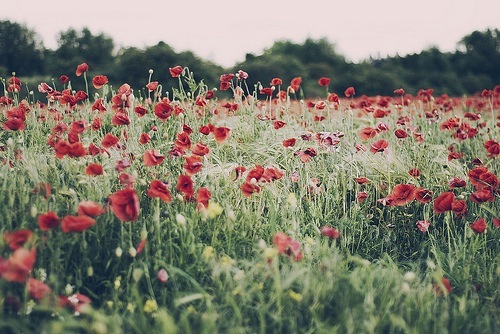Prompt: Discuss the idea(s) created by the text creator in your chosen text about the role of self-preservation in the face of competing demands.
(Cold Critical)
Human beings are creatures who place enormous importance upon our individual self-preservation. We take every opportunity that we can  to continue living and breathing; however, we also reach with hopeful fingertips towards opportunities to preserve our personal values, beliefs, and our good name. In Elie Wiesel’s text Night, self-preservation plays the role of temptation against the backdrop of social and moral responsibilities towards ourselves and others. The text explores how through the devastatingly cruel journey of innocence to near death, the temptation of self-preservation of one’s dignity, life, values and self-image increasingly become more potent as the Jews face highly competitive demands.
to continue living and breathing; however, we also reach with hopeful fingertips towards opportunities to preserve our personal values, beliefs, and our good name. In Elie Wiesel’s text Night, self-preservation plays the role of temptation against the backdrop of social and moral responsibilities towards ourselves and others. The text explores how through the devastatingly cruel journey of innocence to near death, the temptation of self-preservation of one’s dignity, life, values and self-image increasingly become more potent as the Jews face highly competitive demands.
Even in the face of unignorably competitive demands, at first preservation human dignity and the freedom of choice are the factors under which temptation begins to rise. When Elie and his father first arrive at the concentration camp, the deterioration of civility and responsibility in order to preserve life has already begun. The circumstances unknown, the Jews fear the worst immediately- the crematorium. While standing in the line with thoughts of a fiery death searing images of pain and torture into his mind, Elie contemplates suicide. After all, it would be a quick death less painful than what surely awaited him. And yet the thought of his father and the responsibility he had towards him influenced Elie’s eventual decision to remain unmoving in the line. In this example, the definition of self-preservation has become twisted. It is no longer the drive to preserve one’s life in the realm of the living, but rather to die in a dignified way. Suicide was the only way the Elie would be able to die on his own terms and to be able to control some small part of his fate. Yet his moral obligations towards his father are the reason he decides to live. It can be found that the demand for control of one’s fate is indeed a competing demand- much more so that resources that can keep one alive. It is the one circumstance that all of the Jews, in fact, may be craving, for they are entering a life which personal choice is non-existent. The action of suicide represents more than dying by choice and with dignity; it is a way of preserving that ability of choice that humans unaccustomed to such a circumstance, will take for granted. If one dies by his own choice, leaves this life by his own hand before the Nazi tormentor can force work or death upon them, then one will have died with this ability of choice still intact, still preserved. However, it is important to recognize that at this point in the text, Elie’s sense of moral responsibility towards his father overpowers the temptation of self-preservation. The temptation of self-preservation in this case has not reached the point where it drives men mad with the desire, the need, the craving above all else. Which brings forth the dreaded question- in the end, does the temptation of self-preservation in the face of competing demands outweigh the moral responsibilities of life? The subtle yet powerful temptations of self-preservation in the forms of dignity and freedom of choice in the face of competing demands have begun to crack the foundations of moral responsibility. Yet moral obligation is continues to be steadfast.
The preservation of the lives of individuals remains the most powerful influential factor in deciding the actions taking beneath the pressure of survival-based competitive demands. When Elie, his father, and other starving, emaciated Jews ride in the cattle car, bread crusts begin to fall into the cart. Elie wisely avoids the crusts, however others engage in battles to the death for the crust. One old man, having stolen a crust, is killed for it by his own son. This example demonstrates how that animalistic need to survive overpowers all else, including bonds that in circumstances not so extreme, may seem unbreakable. The demand to live- and to eat- becomes a powerful driving force. Not merely a force; self-preservation of one’s life in the face of extreme, violent competition is so intense and all-consuming that it can dissolve any previous moral obligations. Survival is human instinct; it is the drive to continue forward, to reach for the sometimes intangible future. Survival can ironically be deadly; when humans come face to face with circumstances in which they must respond to competing demands or risk their own demise, they live at the expense of something or someone else. And yet this carnal instinct harboured within all of us is released only when it must be. Until we drop the façade of societal civility when we lose all hope, we try to find alternatives- ways to both  survive and survive with respect for ourselves and others. However, the moment that preservation of our survival is threatened, the beast is unleashed. One could contemplate that the intensity of self-preservation in the face of competition and such high stakes not only melts any moral responsibilities, it reveals the true nature of human beings. Inherently vicious, savage, and selfish, humans have created civility as a façade to hide beneath for order. Yet the moment that self-preservation of life is threatened, the mask falls and unleashes the desperate, cruel nature of human beings. Self-preservation in the form of survival has become more than a mere temptation; it is the brutal, unrelenting craving to continue on in life. It demolishes anything that may stand in its way, whether this be the bonds between individuals or the ethical boundaries of a person.
survive and survive with respect for ourselves and others. However, the moment that preservation of our survival is threatened, the beast is unleashed. One could contemplate that the intensity of self-preservation in the face of competition and such high stakes not only melts any moral responsibilities, it reveals the true nature of human beings. Inherently vicious, savage, and selfish, humans have created civility as a façade to hide beneath for order. Yet the moment that self-preservation of life is threatened, the mask falls and unleashes the desperate, cruel nature of human beings. Self-preservation in the form of survival has become more than a mere temptation; it is the brutal, unrelenting craving to continue on in life. It demolishes anything that may stand in its way, whether this be the bonds between individuals or the ethical boundaries of a person.
With demands becoming a heavier burden to bear, self-preservation of one’s life takes over. However there are slower poisons of an individual seeking to preserve their values or their self-image that can be just as brutal, or can- in a twisted way- be good. After arriving in the concentration camp following a brutal transportation, Elie’s father becomes unbearably weak and falls fatally sick. Elie cares for him and gives his father his rations, despite twinges of reluctance. One day, he is told that it is wasteful to give his father his own rations as he is going to die anyway- and that if anything, Elie should be getting his father’s rations. Elie finds himself agreeing. As is exemplified, Elie’s own self-preservation has become significantly more important to him. His reluctance to care for his father demonstrates how the competitive demand of food has become a more highly valued resource than the life of his own father. It can be argued that after witnessing atrocities and surviving the cruel, near-death experience of the cattle car, Elie’s importance upon his own self-preservation has grown. Survival has become more important than family, more important than dignity and choice. Preservation of Elie’s own life, to him, has suddenly become more valuable than his father’s life. However, despite this, Elie continues to care for and give his rations to his father. Elie acknowledges and is shameful of how his mind considers giving in to the temptation of self-preservation, and yet he does not give in. Perhaps this is because while he is sacrificing what may help preserve is life, by helping his ailing father, Elie is preserving his values and his pre-concentration camp beliefs about how one should act. This act of self-preservation is quietly selfish, unbeknownst to all but Elie. It is a slow poison that may taste like wine but inwardly is bleach. It is important to acknowledge another aspect of Elie’s reasoning towards helping his father- he may seek to preserve his self-image. In Elie’s eyes, taking care of his father is a good deed. This reveals the underlying message of the example. Humans, with their monstrous true beings, do good deeds in order to project to themselves and others an image of goodness. This is as a way to assure themselves of their own competency and kindness- as a way to prove that they aren’t bad people. Because despite the hideous things that humans do, we do them because we have a twisted logic and a reasoning. Humans, it seems, can respond to the temptations of self-preservation in the face of competing demands simply by preserving other aspects of themselves.
Over the course of terrible, extreme conditions, the temptation of self-preservation in competing demands above ethical responsibilities begins to grow. Whether self-preservation be of dignity, life, or values and self-image, its interplay with the choiceless demand of the circumstance is placed upon the importance and strength of one’s moral obligations. The question of whether the temptations of self-preservation in the face of competing demands outweigh moral responsibility has an obvious answer: yes… and no.
Citations:
“Remove Your Mask.” – The Superbeings. Web. 20 Jan. 2016. <http://thesuperbeings.net/photo/mask>.
“Night Landscape Wallpaper HD.” #6876195. Web. 20 Jan. 2016. <http://7-themes.com/6876195-night-landscape-wallpaper-hd.html>.


